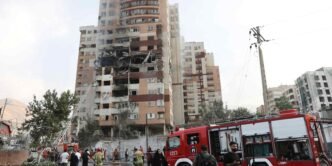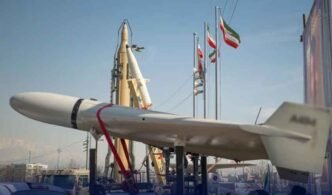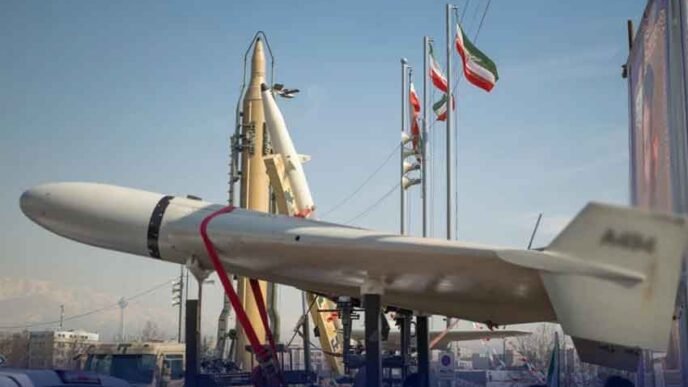Tehran: A dramatic escalation in regional tensions unfolded today as Israel launched widespread aerial attacks across Iran, targeting milit installations and crucial nuclear facilities.
The unprecedented strikes have plunged the region into further uncertainty, prompting a declaration of a nationwide state of emergency in Iran and a strong condemnation from its leadership, which has vowed severe retaliation.
Widespread Strikes and Initial Casualties
Explosions rocked Iran’s capital, Tehran, with loud blasts reported in the city’s northeast. Iranian state media confirmed attacks on milit headquarters and reported that the cities of Qom and Tabriz were also subjected to Israeli airstrikes.
Tragically, the attacks have reportedly claimed the lives of several key figures. Iranian media reports indicate that General Salami, Commander-in-Chief of the Revolution Guards, and senior commander General Gholam Ali Rashid have been martyred. Additionally, prominent nuclear scientists Dr. Tehranchi and Dr. Fereydoon Abbasi are also among the reported fatalities.
Israel Confirms Attacks, Cites Nuclear Threat
Israeli officials swiftly confirmed their involvement in the strikes, stating they targeted Iranian nuclear and milit assets. They reiterated their long-held stance that Iran’s nuclear program poses a significant threat to Israel’s security. Following the initiation of the attacks, Israel itself declared a state of emergency across the nation, with increased troop presence on its borders, including the West Bank.
Israeli Prime Minister “Benjamin Netanyahu” addressed the public, asserting that the conflict was directed against the “Iranian dictatorship” and not its people.
He confirmed that the Natanz nuclear facilities were among the targets, describing the current moment as a “decisive turn” in Israel’s history. Later, Israeli officials claimed to have completed the “first phase” of their operations, having struck dozens of locations across Iran, including six milit bases.
The Iranian Atomic Energy Chief subsequently confirmed that the Natanz reactor, a crucial nuclear facility, had been destroyed. He also listed other cities attacked, including Isfahan, Urmia, Maragheh, and Ahvaz.
Iran Vows “Severe Punishment” and Retaliation
In a forceful response, Iranian officials have vowed a “full response” to what they termed the “bloody force” used by Israel. The spokesperson for the Iranian milit warned that “Israel will pay a very heavy price” and confirmed that Iranian armed forces are on “full alert,” preparing for a “large-scale retaliation.”
Ayatollah Khamenei, Iran’s Supreme Leader, confirmed the martyrdom of milit commanders and senior scientists. He issued a stern warning, stating that “Israel will be severely punished” and should prepare for a “painful response.” Iranian media is reporting that Ayatollah Khamenei is expected to formally declare war against Israel, signaling a potential for further, grave escalation.
Iranian officials also accused the United States of assisting Israel in these attacks, stating that “America will pay a heavy price” and should “expect a strong reaction” from Iran.
Amidst the chaos, Iranian officials clarified that “Army Chief General Baqeri” is alive and is currently in the war room, dispelling earlier reports of his targeting. However, Russian media did report the collapse of a multi-story building in Tehran as a result of an Israeli airstrike, and all flights at Tehran’s Imam Khomeini Airport have been suspended.
International Reactions and Regional Impact
The international community is closely monitoring the volatile situation. US Secret of State Mark Rubio stated that the US was “not involved in attacks against Iran,” emphasizing that Israel’s actions were “unilateral” and undertaken for self-defense. Rubio stressed that America’s priority remains the protection of its forces in the region.
Meanwhile, neighboring Iraq has announced the closure of its airspace and suspended air traffic at all its airports due to the escalating conflict.
The International Atomic Energy Agency (IAEA) stated it was “closely monitoring” the situation and confirmed the targeting of the Natanz nuclear facility. China described Iran’s current security situation as “serious and complex,” reflecting the widespread concern over the rapidly developing crisis.











